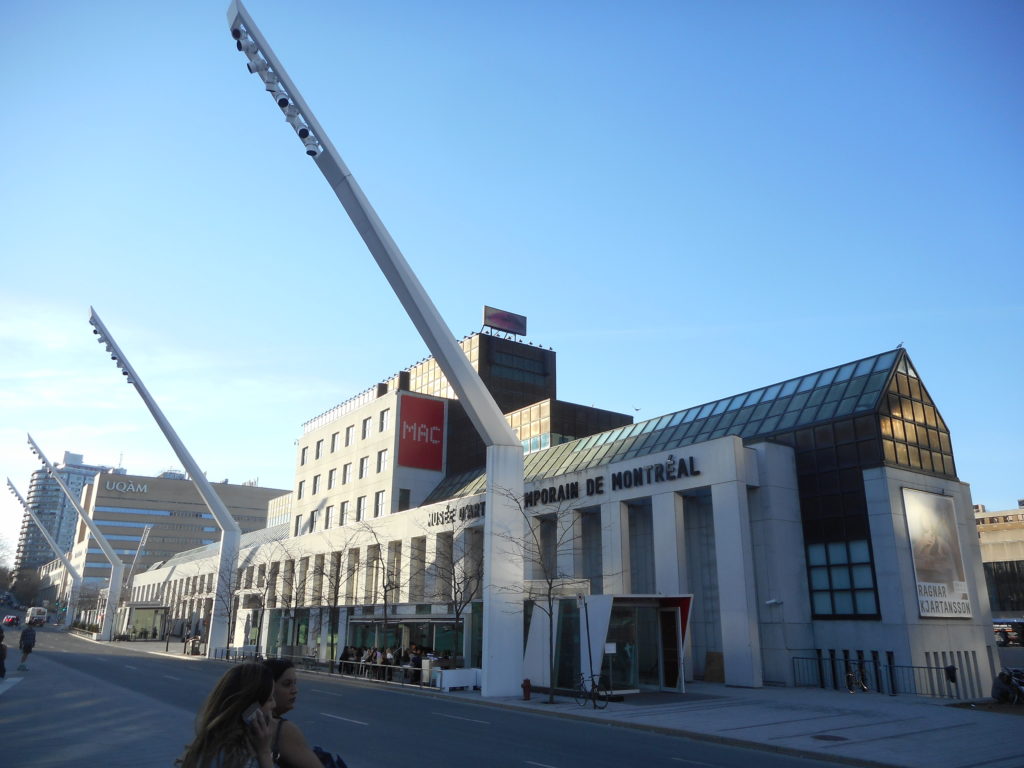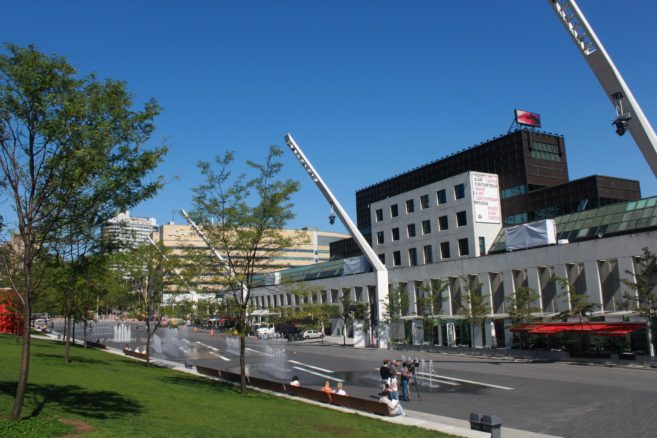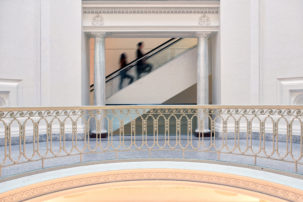Following months of labour action—including two one-day strikes—curators, registrars, educators, information workers and other professional staff at the Musée d’art contemporain de Montreal have signed a new collective agreement with museum management and the Quebec government.
Though many are now working from home due to COVID-19, staff are at last receiving some of the back pay augmentations for the past five years. They have been working without a collective agreement since 2015.
Signed on February 18, 2020, the new collective agreement largely addresses job stability and remuneration. Nine casual posts are being “regularized” to permanent contracts, and working conditions for those who remain on short-term contracts have been revised, with the possibility of acquiring vacation days, group insurance benefits and sick leave. A 5.25 per cent pay raise over five years is in effect, with an additional remuneration of $0.30 per hour in 2015 and $0.16 in 2019. Workers will receive these retroactive increases as a lump sum within 60 days of signing the agreement.
Some structural issues are also highlighted in the new agreement, which was negotiated via the union Syndicat de professionnelles et professionnels du gouvernement du Québec (SPGQ).
MAC curator and SPGQ union member Mark Lanctôt states that he regards these changes less as a “tangible, long-term improvement” and more as a “return to normal…since there’s been a lot of deterioration in employees’ conditions.” For example, he notes that since 2015, fifteen staff members have left the institution, and only six have been replaced.
Lanctôt is “cautiously optimistic” about the overall situation and improvement in employee relations. “Management has been very receptive and a lot more forthcoming. When we signed off on the final papers, I could feel there was a change of tone, [and] the mood had lightened considerably.” Looking ahead, he thinks staff are also more mobilized for future needs: “I’d consider our group a very proactive, concerned, preoccupied group of employees.”
The museum’s administration was also upbeat in their official statement. Yves Théoret, deputy director at the Musée d’art contemporain de Montréal, tells Canadian Art: “We are delighted to report that the Musée d’art contemporain de Montréal (MAC) and the Syndicat de professionnelles et professionnels du gouvernement du Québec (SPGQ) have formally entered into a new collective agreement on February 18, 2020.”
Yet new negotiations will soon be called for: the typical five-year duration for agreements between the Quebec government and its employees and agencies means that the MAC staff’s newly signed document only covers the period until March 31, 2020.
“Both the MAC and SPGQ have expressed an interest in beginning negotiations for the next collective agreement at the earliest opportunity, in the context of the larger set of negotiations taking place between the Government of Quebec and its public sector unions,” Théoret says.
It seems to be the Government of Quebec that staff are now most concerned about: “This government is anti-union in a way I really hadn’t anticipated” Lanctôt says. “There’s not a lot of respect or patience for [the] negotiation process, which also hurts managers, since their hands are tied.”
Adi Jakupović, secretary for the SPGQ and the representative in charge of cultural dossiers, echoes this: “Obviously, we don’t want the negotiations to take four and a half years as this last one did. I would also say that one of the main obstacles is the incomprehensible but profound indifference that the government seems to have for arts and culture, and until they recognize the worth it has for our society, things, as well as our members’ working conditions, will not get better.”
Whether negotiations on the next contract become affected by COVID-19 is another issue. Recent reports indicate that the Quebec Treasury may actually speed up some of its forthcoming public sector contract negotiations due to the pandemic crisis, but much is left to be determined.

 A view of the Musée d’art contemporain de Montréal. Photo: Jean Gagnon. Used under
A view of the Musée d’art contemporain de Montréal. Photo: Jean Gagnon. Used under 





